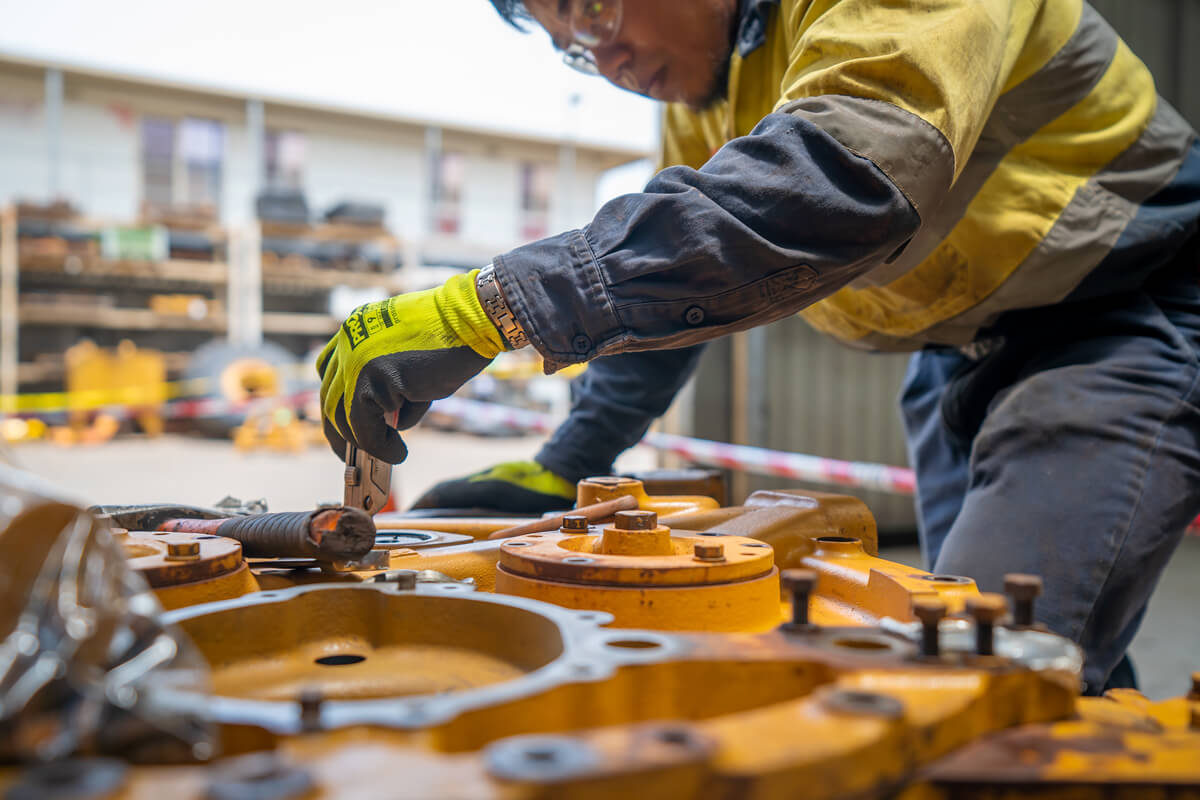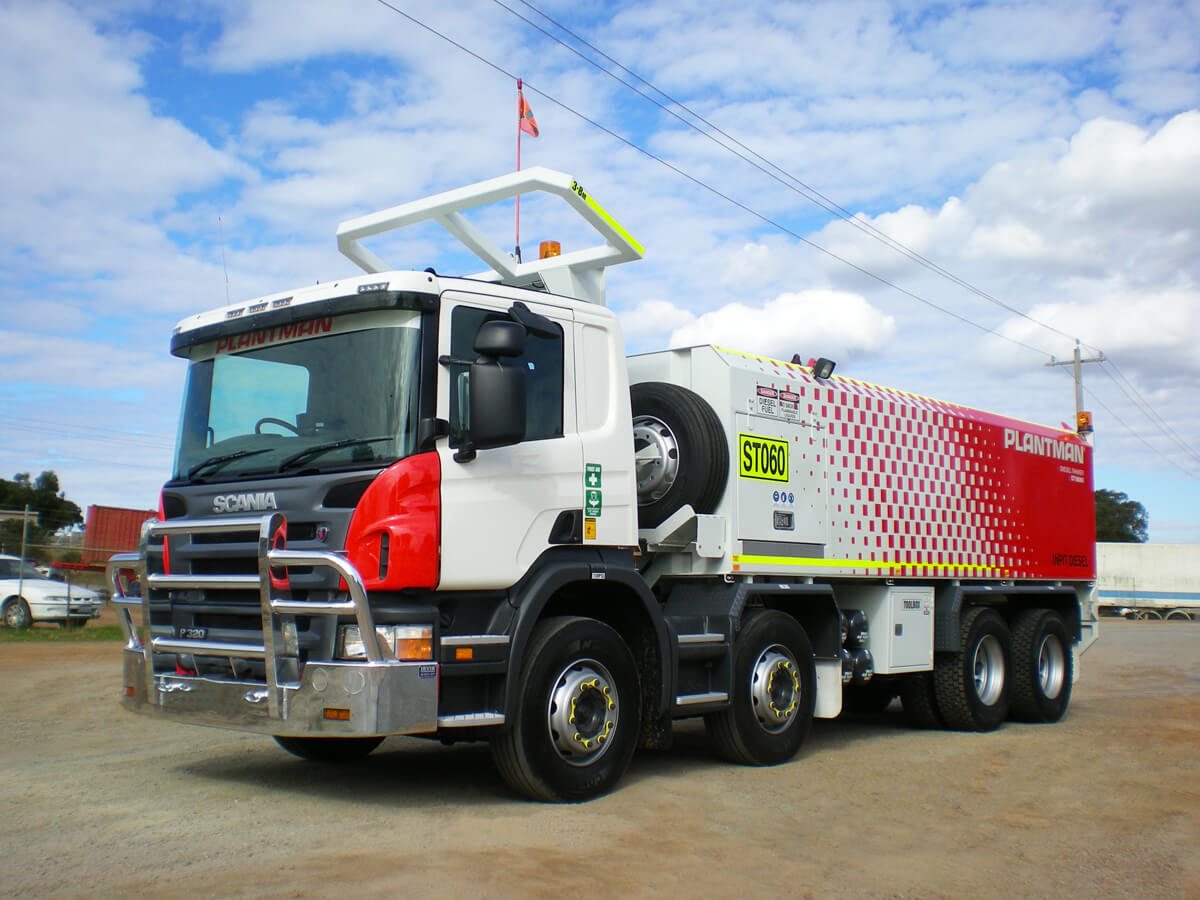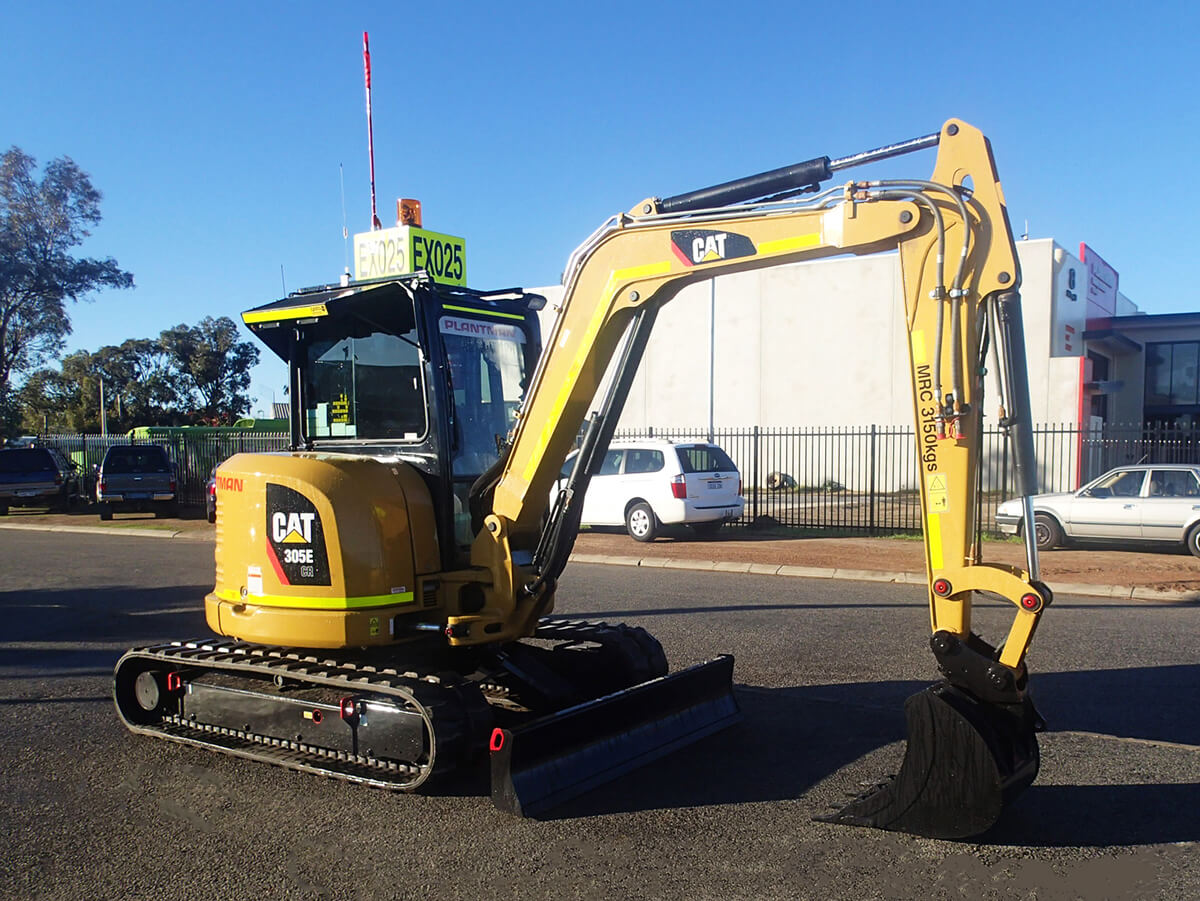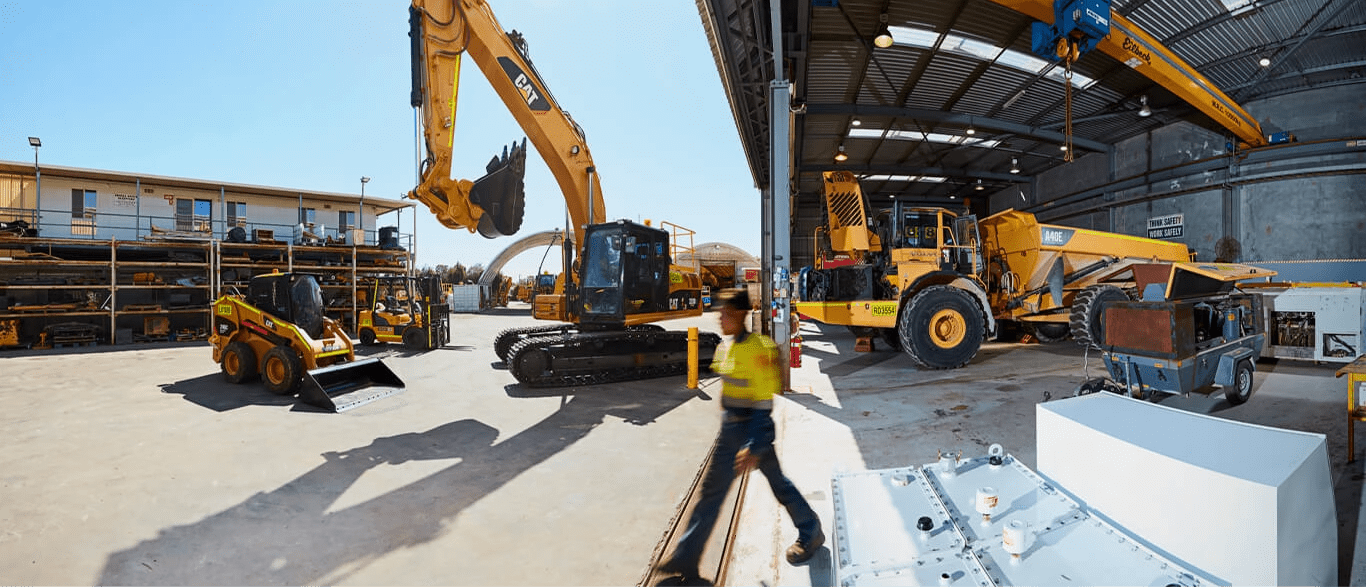Maximising Wheel Loader Productivity: Practical Tips for Operators
Maximise your wheel loader productivity with expert tips from Plantman, Australia’s leading earthmoving equipment specialists. Learn proven operating techniques, maintenance strategies, and site planning methods that reduce downtime, reduce costs, and improve safety across mining and construction projects.
Essential Maintenance Tips for Maximising the Performance of Mining Trucks and Equipment
Ensure peak performance and longevity for your mining equipment with expert servicing. This complete guide covers essential maintenance practices, specialised services for mining trucks and earthmoving machinery, and key signs your equipment needs attention. Partner with Plantman Equipment for professional, on-site servicing across Australia.
The Complete Guide to Servicing Mining Equipment, Trucks, and Earthmoving Machinery
Ensure peak performance and longevity for your mining equipment with expert servicing. This complete guide covers essential maintenance practices, specialised services for mining trucks and earthmoving machinery, and key signs your equipment needs attention. Partner with Plantman Equipment for professional, on-site servicing across Australia.
Australian Regulations for Earthmoving Equipment
Understanding and adhering to Australian regulations and standards is essential for ensuring the safety of operators, other workers, and the general public when operating earthmoving machinery. Without a thorough grasp of these standards, operators risk not only severe legal repercussions but also potential harm to personnel and equipment. As WA’s most comprehensive mining, earthmoving, construction […]
Fuel is one of the biggest expenses for construction and mining projects. However, there are many ways to reduce fuel consumption and save your project a fortune. Here’s everything you need to know about reducing fuel costs on the work site.
What is fuel efficiency?
It’s important to remember that there’s a difference between fuel efficiency and fuel economy, albeit a very slight one. Fuel efficiency refers to the amount of fuel required to complete a specific task. Fuel economy, on the other hand, is all about the amount of fuel consumed in total.
When you calculate fuel consumption, you’ll see how much you’re using and whether it’s appropriate for the amount of work to be completed. By improving fuel efficiency, you can then reduce your overall operating costs.
Benefits of focusing on the fuel efficiency
The fuel costs for any large-scale construction project or mining operation can be astronomical. Plus, it’s no secret that fuel costs are soaring in Australia. So, fuel efficiency should be at the forefront of every project manager’s mind, especially right now. Undoubtedly, heavy machinery and equipment use a lot of fuel, so it’s crucial to cut costs wherever possible.
When you successfully reduce your fuel efficiency, you’ll notice a range of benefits, and it’s not all about the project’s bottom line.
Lower operating costs
Of course, money is a significant consideration for most project managers, so let’s consider the operating costs. Fuel is a huge part of any major construction or mining project. You use it for machinery, equipment, and vehicles, so the costs add up pretty quickly. In fact, behind staff wages, fuel costs are usually the largest expense for most construction projects.
Maintaining a focus on fuel-efficient practices around the site can certainly help reduce overall operating costs. Even if it costs a little more to rent or buy a more fuel-efficient machine, it will pay off in the long run.
Reduced environmental impact
All businesses are trying to reduce their carbon footprint these days, and lowering fuel consumption is a surefire way to do this. You don’t even have to be particularly green-minded to see this is a benefit.
Diesel exhaust carries several compounds like soot and carcinogens that are harmful to both humans and the environment. By reducing fuel use, you’re doing your bit for the health of your workers and the planet.
Longer lifespan of heavy equipment
Correctly-used equipment typically lasts longer. Generally, if your fuel consumption is reduced, so is the pressure on your machine’s engine to perform. As a result, you can expect your equipment to last longer with fewer maintenance requirements, saving you even more money.
Let’s delve into a few operational things you can do to save fuel. These suggestions also positively impact machinery longevity.
Reduce driving speed
The faster you drive in heavy machinery, the more fuel you use. It’s probably one of the easiest ways to burn through fuel unnecessarily. Naturally, everybody has deadlines to meet, which often puts pressure on operators to get from place to place faster than they should. The problem is that while it might save you a few minutes, it can wreak havoc on fuel economy.
The increased fuel costs negate the time savings you might get from having your operators tearing around a job site. Plus, driving slowly in heavy machinery means the entire job site is safer, and you’re also keeping emissions down.
Maintain correct tyre pressure
It’s not something we always think about when trying to maximise fuel efficiency, but maintaining proper tyre pressure can make a significant difference. Generally, you can expect a piece of machinery to lose around 3% of fuel efficiency if the tyres are just 6 PSI under the recommended amount.
These are some pretty big numbers, and it only gets worse if your tyres are more underinflated than that. Keep an eye on the tyre pressure of all machinery, vehicles, and equipment to save yourself plenty on fuel costs.
Reduce idle times
Leaving heavy machinery idling for long periods is basically like throwing money out the window. In years gone by, it was common for operators to let equipment idle for a period during startup and shutdown. It was necessary because the machinery needed that time to ‘warm up’ and get going. However, modern machinery doesn’t need this sort of attention.
Your heavy equipment, as long as it’s in good working order, doesn’t need long during warm-up and cooldown. Reduce those idling times, and you’ll cut your fuel costs by plenty.
Improve site communications
While we’re on the topic of idling, let’s talk about project planning and site communications. In mining and construction operations, you have workers performing a wide range of tasks at the same time. Heavy machinery generally moves around the site and is required for certain tasks. Unfortunately, this means machines are often left idling while waiting for someone else to finish a job.
Rather than leaving machines idling, a bit of planning can prevent this sort of log-jam on the work site. Identify where you will need heavy machines throughout the day and plan for them to be used in a block of time. This isn’t always possible, but try to improve site communications so that if there’s a delay, your machinery operators can turn it off rather than idling for long periods.
Use lower RPM for shifting
Most heavy equipment requires regular shifting of gears, but how you do it can directly impact your fuel costs. In the pursuit of fast completion of tasks, operators often gear up and throttle back while the vehicle is at high RPMs, which can be terrible for fuel-efficiency.
Alternatively, shifting gears should only be done at low RPMs because this will reduce your average fuel consumption. It may be a small thing, but it all adds up over the course of a project. Often, this type of operation can be due to inexperience, so ensure that your drivers and operators are well-trained in fuel-efficient practices.
Look for fuel-efficient equipment
When checking out heavy equipment suppliers, always look out for fuel-efficient machines. Naturally, this is the best way to conserve fuel right from day one. Of course, modern technology has significantly helped in improving fuel efficiency. It’s not a guarantee, of course, but generally, the more modern your machines are, the better they will be for fuel economy.
It’s why you should always ask about fuel efficiency when starting to look around for heavy machinery and equipment. When you first buy or hire a machine, you can choose the best on the market. The budget will provide certain limitations, but spending a little more on a fuel-efficient machine could save you thousands in running costs along the way.
Provide operators with clear instructions
At the end of the day, it’s the drivers and operators that need to be responsible for the way they use your machinery. You can take plenty of steps to reduce fuel consumption, but your operators have a massive role to play. This is why you must clearly communicate expectations to all workers, ensuring they take fuel consumption seriously.
Actions such as reducing speed, cutting down idling time, and not accelerating too aggressively can reduce fuel costs. However, your drivers are the ones responsible for this. You probably don’t want to be looking over people’s shoulders all day, but if you notice drivers and operators not adhering to the driving rules, be sure to pull them up on it.
Clean air filters regularly
Finally, the other thing you should check and clean regularly are your air filters. Air filters prevent dust and debris from getting into your engine. Therefore, they are a vital component to ensure your engine runs smoothly. Consider that most of your work will be undertaken in dirty, dusty environments, and it’s clear that your engine’s air filters have a lot of work to do.
The bottom line is that a better-performing engine is always more fuel-efficient. If the engine has to work harder to achieve the desired output, it uses more fuel. You'll cut fuel costs by regularly checking, cleaning, and replacing air filters on your heavy equipment.
Contact Plantman for your heavy equipment needs
Plantman is your leading heavy equipment provider, offering easy access to a wide range of heavy equipment for hire and sale. Our heavy equipment is designed and customised for mine and large-scale construction operations. That means better, more purpose-built equipment and higher safety standards.
If you want to buy or rent heavy equipment, contact us today by calling any of the numbers listed below, or simply by filling in the form. Our experts are ready and eager to help you with all your needs, and we can also customise and tailor our equipment to suit your requirements. We’ve had plenty of satisfied customers over 30 years, and we’d absolutely love for you to be the next one.










Now that I’ve found Plantman and they’re local which is a bonus, I won’t need to look elsewhere. They also have an extensive range of equipment that suits our requirements for servicing the mining industry. I have no hesitation in recommending Plantman to any of our clients. Well Done!!!